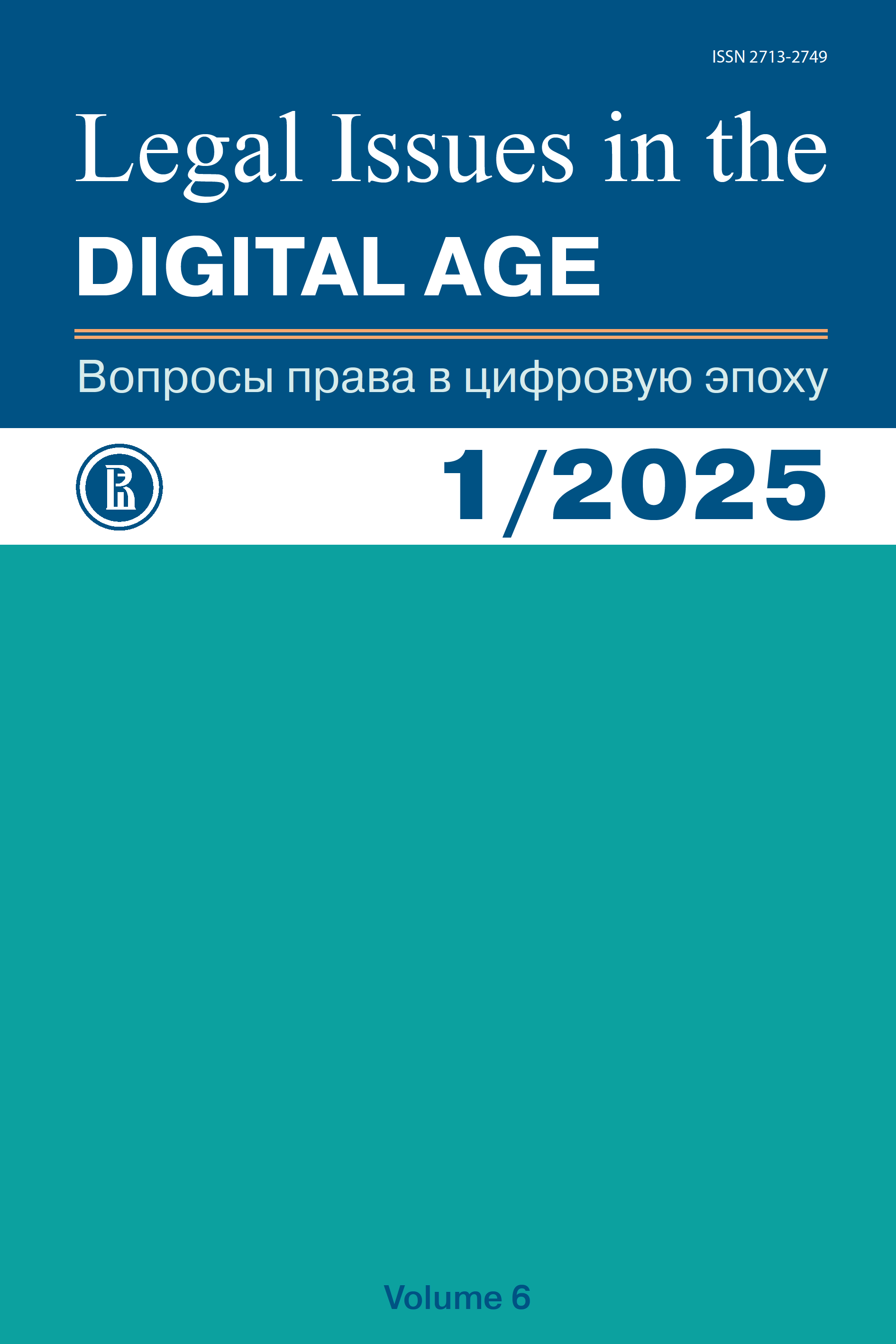A Comparative Perspective on the Future of Law in a Time of Artificial Intelligence
Аннотация
The article explores the impact of AI on legal systems globally. It highlights how technology, particularly AI, disrupts social order and power dynamics, necessitating legal adaptations. The document categorizes global AI regulatory responses into four types: no response, reliance on existing tech regulations, fragmented solutions, and unified approaches. The European Union (EU) has adopted a unified approach with the Artificial Intelligence Act (AIA), aiming to harmonize AI rules, address risks, and stimulate AI development. The United States employs a piecemeal approach with the National Artificial Intelligence Act of 2020 and various state laws and executive orders. Australia lacks specific AI legislation, but it has an AI Action Plan focusing on economic benefits and talent development. South Africa’s National AI Policy Framework emphasizes economic transformation and social equity. The African Union’s Continental AI Strategy aims for socio-economic transformation while addressing AI risks. Canada has a Voluntary Code of Conduct and a proposed Artificial Intelligence and Data Act (AIDA). The document critiques current AI regulations for incomplete definitions and a lack of focus on the broader societal purpose of AI. It stresses the need for regulations to consider ethical dimensions and societal impacts. The document concludes that AI regulation must balance innovation with social order, human dignity, and safety, emphasizing the urgent need to address AI’s energy and water consumption to prevent potential global instability.
Литература
Berenson F. (1982) Hegel on others and the self. Philosophy, vol. 57, no. 219, pp. 77–90. DOI: https://doi.org/10.1017/S0031819100069540
Cloete F. (2024) Governing Artificial Intelligence (AI) and other Technologies in the Digital Era. Administratio Publica, vol. 32, issue 1, pp. 1–30.
Devenish G.E. (1992) Interpretation of Statutes. Cape Town: Juta & Co Ltd., 298 p.
Floridi L. and Cowls J. (2019) A Unified Framework of Five Principles for AI in Society. Harvard Data Science Review, vol. 1, issue 1, pp 1–14. DOI: https://doi.org/10.1162/99608f92.8cd550d1
Gamauf R. (2007) Cum aliter nulla domus tuta esse possit... : Fear of slaves and Roman law. Actes du Groupe de Recherches sur l’Esclavage depuis l’Antiquité, vol. 29, pp. 145–164.
Hopster J. (2021) What are Socially Disruptive Technologies? Technology in Society, vol. 67, pp. 1–8. DOI: https://doi.org/10.1016/j.techsoc.2021.101750
Hutchinson D., Pretorius C.J. et al. (2022). The Law of Contract in South Africa 4 ed. Cape Town: Oxford University Press, 528 p.
Kaser M. (1975) Das Römische Privatrecht, 10 ed. München: CH Beck’sche Verlagsbuchshandlung, 634 p.
Kim J. (2019) Fear of artificial intelligence on people’s attitudinal & behavioral attributes: An exploratory analysis of A.I. Phobia. Global Scientific Journal, vol. 7, issue 10, pp. 9–20.
McCarthy J., Minsky M. et al. (2006) A Proposal for the Dartmouth Summer Research Project on Artificial Intelligence, August 31, 1955. AI Magazine, vol. 27, issue 4, pp. 12–14.
Schermaier M. et al. (2023) The position of Roman slaves. Berlin: Walter de Gruyter GmbH, 296 p. DOI: https://doi.org/10.1515/9783110987195
Scott T.J., Cornelius S.J. et al. (2020) The Law of Commerce in South Africa 3 ed. Cape Town: Oxford University Press, 638 p.
Sheikh H., Prins C., Schrijvers E. (2023) Artificial Intelligence: Definition and Background. In: Mission AI. Research for Policy. The New System of Technology. Cham: Springer, 410 p. DOI: https://doi.org/10.1007/978-3-031-21448-6_2
Silver M. (2016) At the base of Rome’s peculium economy. Fundamina, vol. 22, issue 1, pp. 67–93. DOI: https://doi.org/10.17159/2411-7870/2016/v22n1a5
Thomas J.A.C. (1976) Textbook of Roman Law. Amsterdam: North-Holland Pub. Co., 592 p.
Van den Bergh R. (2015) ‘He’s one who minds the boss’s business …’ Fundamina, vol. 21, issue 2, pp. 359–437. DOI: https://doi.org/10.17159/2411-7870/2015/v21n2a9
Vernyuy A. (2024) Impact of Technological Advancements on Human Existence. International Journal of Philosophy, vol. 3, issue 2, pp. 54–66. DOI: https://doi.org/10.47941/ijp.1874
Watson A. (ed.) (1998) The Digest of Justinian, Vol. 4 (Revised). Philadelphia: University of Pennsylvania Press, 768 p.
Copyright (c) 2025 Cornelius S.

Это произведение доступно по лицензии Creative Commons «Attribution-ShareAlike» («Атрибуция — На тех же условиях») 4.0 Всемирная.
Авторы, присылающие рукописи для рассмотрения к публикации в Журнале, принимают Политику лицензирования, авторских прав, открытого доступа и использования репозиториев.









